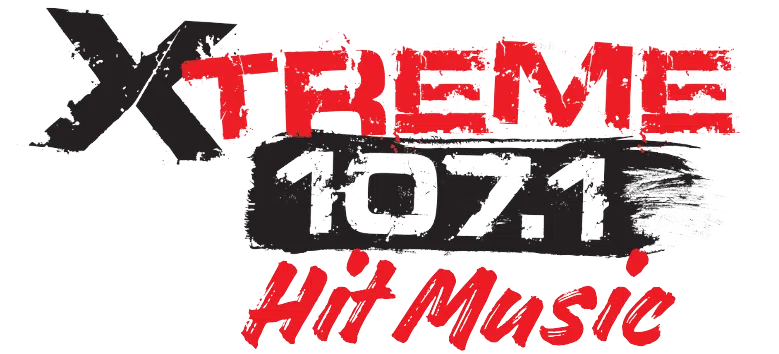Two years ago, Nick Pennau and his partner Amber stopped by a party in Marquette County on their way to Wisconsin Dells. They didn’t know anyone there; Nick’s sister had invited them.
It wasn’t long until things went bad. Everyone was drinking at the point Amber and another woman started fighting; some of the men got involved. Court records say Nick saw someone grab Amber, and that was when he stepped in. A few shoves later, Amber was on the ground getting kicked, court records say. Nick threw his body on top of her–and that’s the last thing he remembers.
He came to in his pickup truck miles away. Marquette County Sheriff’s Office deputies were there, trying to piece together what happened. Nick’s jaw was shattered; the bone appeared to be “moving in and out” and his jaw was “in a V shape”, a deputy wrote in court statements. Nick winces when he talks about it; he spent time in the ICU and a couple more nights in the hospital after his nine-hour surgery. Some of the damage is permanent, he says; he lost about two months of work.
“I don’t like talking about it. I don’t like thinking about it every day,” he said. “That’s the big mental thing for me. I think about it, I get angry, and I don’t want to. I don’t want to anymore. I just want it done.”
Two people were charged with felony battery, Joseph Rykiel and Parry Starling. Neither has been convicted or acquitted in the case, but now about two years later, Nick is facing the fallout from more than $100,000 in hospital bills and pandemic-related court delays he believes are responsible for plummeting credit scores.
Pause in jury trials put cases on hold
At first, the cases were delayed in part because of a year-long warrant out for Parry Starling, who was out of state and failed to appear in court. A warrant was issued in late 2019 and both cases started moving forward again, going so far as to schedule a jury trial in Joseph Rykiel’s case last February for June, 2020.
Then, the pandemic.
The Wisconsin Supreme Court shut down jury trials in late March last year. Subsequent orders relaxed restrictions and some counties reopened earlier, but many didn’t. Marquette County only just restarted jury trials on April 1. Others, like Dane County, won’t restart until June 1.
Marquette County district attorney Brian Juech said their courtroom simply wasn’t large enough to meet safety requirements to form a plan and reopen earlier.
“There were no delays caused by anything except for Covid-19 and ensuring the safety of not only the participants in the trial, Mr. Pennau included, but also the citizens of Marquette County who would be required to serve as jurors for that trial,” Juech said in an email to News 3 Investigates.
Pennau isn’t alone among victims waiting on case resolutions and justice amid unavoidable delays because of COVID-19. Juech said he’d spoken to other victims in his county who are waiting to see their cases resolved but are experiencing delays while the county works to put more safety practices in place.
It’s the months spent waiting on hearings and trial dates that Pennau blames for his current financial predicament. Surgery and orthodontist bills for his jaw surgery and hospital stay come to more than $100,000. He doesn’t have health insurance, doesn’t qualify for BadgerCare, and as the months went by he had to watch while his credit score dipped by 100 points and debt collectors came calling.
He’s at a place where he wants to put his past behind him, buy a house, and reclaim his life. He can’t–and he blames the delays.
Missed opportunities and the role of restitution
Wisconsin’s Department of Justice administers a crime victims fund to cover expenses like medical bills incurred through no fault of their own. There’s stipulations and fine print, and the claim has to be filed within a year of the date of crime. Pennau says he learned about it from the district attorney’s office after the year deadline had passed.
What he’s really hoping for now, he says, is court-ordered restitution.
Wisconsin law lays out a process for victims to get restitution if someone is convicted of a crime that directly cost them money. What Pennau wants for justice is a court order that would require restitution from Starling and Rykiel for the tens of thousands he’s facing in medical bills—but that would require a conviction, whether through trial or plea deal. In at least one of those cases, it could hinge on a long-delayed trial.
Restitution is most commonly ordered after a judge or jury finds a defendant guilty of the charge in question. According to the Wisconsin Department of Justice, payments are generally made to the victim through a county’s district attorney office and often become a condition of extended supervision if an offender leaves prison still owing money under the order.
They’re also hard to get rid of: restitution orders supersede declarations of bankruptcy, and any income tax returns are redirected to restitution payments until fulfilled. Plus, Wisconsin Republicans introduced a bill this March that would require inmates to put their stimulus checks toward restitution. Under both the Trump and Biden administrations, state prisoners have been eligible for stimulus payments paid out under three federal COVID-19 aid legislation packages.
Overall, the restitution system has largely worked, prosecutors say.
“That’s been highly effective,” managing attorney Bob Barrington from the Dodge County District Attorney’s Office said. “I know our clerk of courts office has collected millions of dollars in restitution, and we’re a fairly small county.”
Pursuing collections on an order, however, is the victim’s responsibility–and so are managing payments and credit scores while the bills remain in their name. A court order for restitution doesn’t necessarily mean relief from debt collectors or a credit score fix, Barrington said.
“Even if we have restitution ordered, many times the hospitals will work with the victims and they’ll put them on payment plans, but the victim is ultimately responsible for the money,” Barrington noted. “And even with a restitution order, doesn’t mean that the money’s going to come in tomorrow.”
Courts facilitate payments, but it’s up to the victim if they want to hire collection agencies or take other actions like using small claims court to garnish wages to collect on the debt (if amounts are under $10,000). They’re also on the hook for the fees and costs that come with all that.
“No one in the ‘system’ is assigned to assist the victim in this process,” a 2014 DOJ guide noted.
But in Nick’s case, none of that matters until there’s some kind of case resolution.
“I just want this whole thing to be done,” he explained. He wants to rebuild his financial life. “With more than two years’ salary up and dead at the hospital there, that’s pretty hard to do.”
Justice Delayed
A rising backlog in court cases delayed by the pandemic and the lack of a jury trial deadline has the criminal justice system concerned. It could take months–if not a year or more–to return to normal. Click here for Part One of the News 3 Investigates series: Justice Delayed.
COPYRIGHT 2021 BY CHANNEL 3000. ALL RIGHTS RESERVED. THIS MATERIAL MAY NOT BE PUBLISHED, BROADCAST, REWRITTEN OR REDISTRIBUTED.









